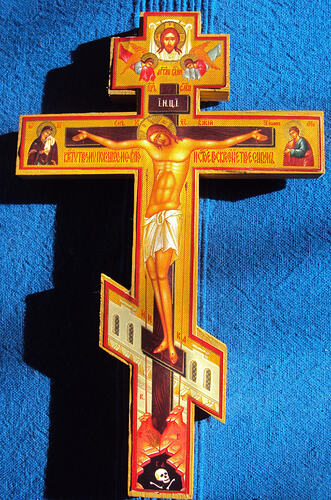It’s not only Revelation, but the understanding that Mary is the New Ark of the Covenant, as some of the Early Church Fathers pointed out. And she is the New Eve. And knowing what we do about the Ark of the Old Covenant and the original Eve, we can draw conclusions about the New Ark and the New Eve.
We also must understand that it was God who made Mary Holy (full of grace) and her cooperation with His grace; and obedience to the Father (where Eve was disobedient to the Father); that Mary was Holy.
God did not put enmity between the Woman and her Son (Jesus). Mary is on team Jesus. God did however put enmity between the Woman and her seed and the serpent and his offspring (Genesis 3:15). Where Eve and Adam brought sin and death into this world, Mary and Jesus brought reconciliation & life into our world (glory to God)!
If you do not accept the Marian dogmas, it does not change my life one way or the other, but it does make me sad how many Protestants fail to see what God has done in Mary and how she is a sign of what God has done, is doing, and may do in our lives as members of His body (the church).
I have recently been studying the different theologies (Covenantal theology vs. Dispensationalism and the sub-theologies within each of these).
Catholic Christians nether believe in a Replacement theology nor a bi-Covenant theology. We believe that God did not Promise the Jewish people land, but rather a savior (Jesus Christ). Jesus is the fulfillment of the Promises of God to the Israelites. And He grafted into this New Covenant Gentiles as well as Jews. So going with a plant analogy, there is only one shoot, not two (dual-Covanentalism). God did not get rid of the old shoot and replace it with a new one either (replacement theology).
We believe
And when the new Testament talks about Israel, it sometimes is referring to the Old Covenant (shoot before God grafted in non-Jews); other times it is referring to Jewish leaders (who follow the law, but lack faith), and sometimes it is referring to the church of the New Covenant (the shoot after grafting in non-Jews). What it is not talking about is the political state of Israel formed in 1948.
As Catholic Christians, we should not hate Jewish individuals who do not recognize Jesus as the fulfillment of God’s Promises. There will come a time when many will convert (at the end of time). And we should Pray for Orthodox Jews, Secular Athirst Jews, Ethnic Jews, Reformed Jews, Honorary Jews, and Messianic Jews, that they may fully come into the fullness of Faith, and one day enter into the new Jerusalem (Heaven).
Can Jews be saved? We believe, yes, however, it is out of God’s grace, because of their ignorance that they may be saved. But, this does not mean that all Jewish individuals will be saved. And they won’t be saved because they follow the laws of the Old Covenant (for this would be dual-Covenant theology, which we do not believe in).
I plan to make a post about this in a few weeks as I am still studying the topic, but this is my current understanding on the topic.

